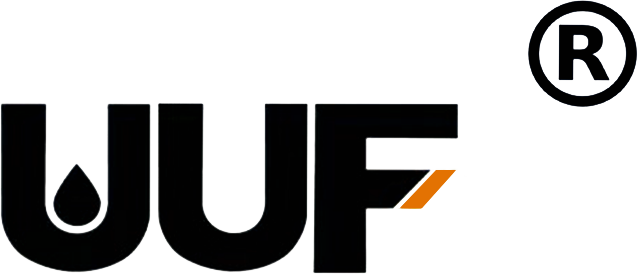Choosing the Right Valve Oil Seals for Your Car's Engine: A Comprehensive Guide
Time:
2025-08-11
Choosing the Right Valve Oil Seals for Your Car's Engine When it comes to maintaining a vehicle, one critical component that often goes overlooked is the valve oil seal. These seemingly small parts play a vital role in the engine's performance and longevity. In this guide, we will delve into the intricacies of selecting the right valve oil seals for your car's engine. We aim to equip you with the
Choosing the Right Valve Oil Seals for Your Car's Engine
When it comes to maintaining a vehicle, one critical component that often goes overlooked is the valve oil seal. These seemingly small parts play a vital role in the engine's performance and longevity. In this guide, we will delve into the intricacies of selecting the right valve oil seals for your car's engine. We aim to equip you with the knowledge necessary to make informed decisions, ensuring that your vehicle operates smoothly and efficiently.
Table of Contents
1. Understanding Valve Oil Seals
2. Importance of Quality Oil Seals
3. Types of Valve Oil Seals
3.1. Rubber Valve Seals
3.2. Teflon Valve Seals
3.3. Viton Valve Seals
4. Factors to Consider When Choosing Valve Oil Seals
4.1. Engine Type
4.2. Temperature Resistance
4.3. Compatibility with Engine Oil
5. Signs of Worn Valve Oil Seals
6. Installation Tips for Valve Oil Seals
7. Maintaining Your Valve Oil Seals
8. Frequently Asked Questions
9. Conclusion
1. Understanding Valve Oil Seals
Valve oil seals are critical components in an internal combustion engine. They are responsible for preventing engine oil from leaking into the combustion chamber, which can lead to a myriad of problems, including reducing engine efficiency and causing significant damage over time. Understanding the function of these seals allows car owners to appreciate their importance, leading to better maintenance practices.
2. Importance of Quality Oil Seals
The quality of valve oil seals directly impacts the overall performance of your engine. High-quality seals effectively contain oil where it belongs, preventing leaks and ensuring that the engine runs smoothly. Conversely, subpar seals can lead to oil consumption issues, increased emissions, and even engine misfires. Investing in the right valve oil seals is crucial for the longevity of your vehicle.
3. Types of Valve Oil Seals
There are several types of valve oil seals, each with its unique properties and advantages. Understanding these types is essential to making an informed selection suited to your vehicle's needs.
3.1. Rubber Valve Seals
Rubber valve seals are the most common type used in many vehicles. They are flexible, durable, and provide excellent sealing capabilities. However, they can degrade over time, especially under high temperatures, making it essential to monitor their condition.
3.2. Teflon Valve Seals
Teflon valve seals are known for their resistance to heat and wear. They offer a low-friction surface, which can enhance engine efficiency. While they tend to be more expensive than rubber seals, their longevity and performance often justify the investment.
3.3. Viton Valve Seals
Viton seals are made from a synthetic rubber known for its superior resistance to chemicals and high temperatures. These seals are ideal for high-performance engines that operate under extreme conditions. Their durability makes them a preferred choice for racing and high-performance applications.
4. Factors to Consider When Choosing Valve Oil Seals
Selecting the right valve oil seal requires careful consideration of several factors. Understanding these will help you make the best decision for your engine.
4.1. Engine Type
Different engines have different requirements. For instance, an older engine may require seals that can withstand more wear and tear, while a modern engine may benefit from advanced materials like Teflon or Viton. Always consider the specific needs of your engine when selecting valve oil seals.
4.2. Temperature Resistance
Engines operate at varying temperatures. If your vehicle frequently runs hot, it’s crucial to choose seals designed to withstand higher temperatures. Rubber seals may not perform adequately in high-heat environments, making options like Teflon or Viton more suitable.
4.3. Compatibility with Engine Oil
The type of engine oil used in your vehicle can also dictate the choice of valve oil seals. Some seals are more compatible with synthetic oils, while others perform better with conventional oils. Always check the manufacturer’s recommendations for compatibility.
5. Signs of Worn Valve Oil Seals
Recognizing the signs of worn or damaged valve oil seals can be critical in preventing further engine issues. Look for the following symptoms:
- **Excessive oil consumption**: If you find yourself frequently adding oil between changes, it could indicate a problem with the valve seals.
- **Blue smoke from the exhaust**: This is a clear sign that oil is entering the combustion chamber, often due to worn seals.
- **Engine misfire**: If the seals are allowing oil to leak into the combustion chamber, it can lead to misfires and reduced engine performance.
6. Installation Tips for Valve Oil Seals
Proper installation of valve oil seals is essential for ensuring their effectiveness. Here are some tips to follow:
- **Clean the area**: Before installing new seals, ensure that the surface is clean and free from debris.
- **Use the right tools**: Utilize the proper tools for installation to avoid damaging the seals.
- **Lubricate the seals**: A light coating of oil can help with installation and ensure a better seal.
- **Follow manufacturer guidelines**: Always adhere to the specifications provided by the manufacturer for installation procedures.
7. Maintaining Your Valve Oil Seals
Maintaining your valve oil seals is crucial for their longevity. Here are some maintenance tips:
- **Regular oil changes**: Frequent oil changes can help reduce wear on the seals.
- **Monitor engine performance**: Keep an eye on engine performance and address any issues promptly.
- **Check for leaks**: Regularly inspect the engine for signs of oil leaks and address them immediately.
8. Frequently Asked Questions
What are the most common materials used for valve oil seals?
The most common materials include rubber, Teflon, and Viton. Each has its strengths, making them suitable for different applications.
How do I know if my valve oil seals need replacement?
Signs of worn seals include excessive oil consumption, blue smoke from the exhaust, and engine misfires. Regular checks can help identify issues early.
Can I install valve oil seals myself?
Yes, with the right tools and knowledge, you can install valve oil seals yourself. Following manufacturer guidelines is crucial for a successful installation.
How often should I replace valve oil seals?
The lifespan of valve oil seals can vary, but they should generally be inspected during major engine repairs or every 100,000 miles, depending on your vehicle.
What happens if I ignore worn valve oil seals?
Ignoring worn seals can lead to significant engine damage, increased oil consumption, and reduced performance. Prompt attention to any signs of wear is crucial.
9. Conclusion
Selecting the right valve oil seals for your car's engine is a crucial aspect of vehicle maintenance that should not be overlooked. Understanding the different types of seals, their importance, and the factors influencing your choice enables you to take proactive steps in maintaining your vehicle's performance and longevity. By investing in quality seals and adhering to proper installation and maintenance practices, you can ensure that your engine runs efficiently for years to come. Remember to keep an eye on signs of wear and address any issues promptly to avoid costly repairs down the line. Your car deserves the best, so choose wisely!
Keyword:
Valve Oil Seal


















